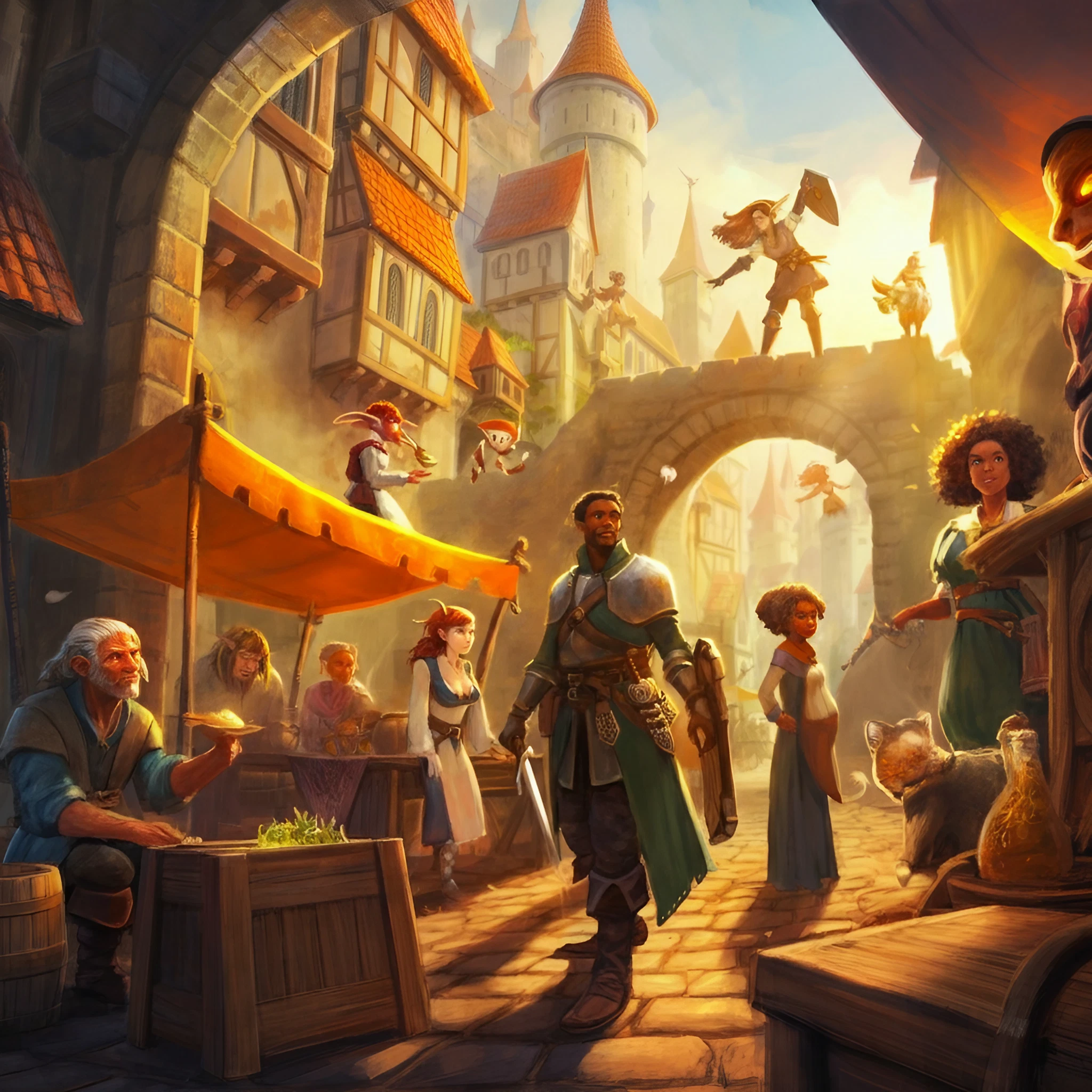From pixelated beginnings to fully immersive virtual worlds, massively multiplayer online role-playing games (MMORPGs) have taken gaming enthusiasts on extraordinary journeys for decades. For many, MMORPGs aren’t just a genre; they’re a lifestyle, a community, and an adventure waiting to unfold. Whether you’re a seasoned gamer or just curious about the hype, this guide will walk you through the evolution, features, and future of MMORPGs.
What Are MMORPGs?
At their core, massively multiplayer online role-playing games are virtual environments where players from all over the world come together to quest, battle, trade, and discover expansive digital landscapes. Players can create their own characters, customize their appearance and abilities, and interact with thousands of others in real-time.
MMORPGs blend narrative, exploration, and cooperative (or competitive) gameplay into one seamless experience. From early games with basic graphics and gameplay mechanics to today’s hyperrealistic, complex digital worlds, the genre has seen rapid evolution.
A Brief History of MMORPGs
MMORPG history dates back to the late 1970s, with text-based multiplayer games like MUD1 (Multi-User Dungeon), which served as the genre’s blueprint. The leap into graphical RPGs emerged with titles such as Ultima Online (1997) and EverQuest (1999), which laid the groundwork for many staples of the genre, such as open-world exploration and formalized guild mechanics.
The genre hit mainstream success with the legendary World of Warcraft (WoW) in 2004. Blizzard’s masterpiece connected millions of players worldwide, setting new benchmarks for storytelling, interaction, and world-building in MMORPGs. Since then, games like Final Fantasy XIV, The Elder Scrolls Online, and Guild Wars 2 have captivated audiences with fresh mechanics and endlessly explorable worlds.
Core Elements of MMORPGs
What makes MMORPGs unique compared to other genres? It’s all about immersion and social interactivity. While gameplay can differ from title to title, these core elements are universal:
1. Character Creation and Customization
Creating a unique virtual identity is one of the most exciting aspects of MMORPGs. Players can customize everything from their character’s appearance, race, and class to their skillsets and abilities. Want to be an Elven mage? Or perhaps a hulking Orc warrior? The choice is yours.
2. Expansive Open Worlds
From lush forests to fiery volcanoes and sprawling cities, MMORPGs provide vast, intricately designed worlds meant for endless exploration. Each area often comes with its own lore, creatures, and challenges to keep the experience dynamic.
3. Questing and Story-Driven Gameplay
Players are drawn into rich narratives through quests that help them level up and gain rewards. Some quests revolve around saving the world, while others offer lighthearted fun or insight into the game’s lore.
4. Combat Systems
Combat mechanics in MMORPGs vary but often include real-time or turn-based systems. Many games feature both PvE (Player vs Environment) and PvP (Player vs Player), catering to those who enjoy fighting powerful NPC bosses or testing their skills against other players.
5. Guilds, Clans, and Teams
Teamwork is not just recommended in MMORPGs; it’s often essential. Players form guilds or teams to tackle large-scale raids, conquer challenges, and share resources. This builds camaraderie and fosters a sense of belonging.
The Social Side of MMORPGs
One of the defining dynamics of MMORPGs is their social aspect. These games are not just about mechanics and missions; they’re about people. MMORPGs unite players from diverse backgrounds to share stories, strategies, and achievements. Here are a few ways they facilitate strong communities:
- Guilds and Alliances: Players form guilds to collaborate on raids, trade resources, or simply socialize. They often develop their own cultures and traditions, with some guilds being active for years.
- Event Participation: Games like Final Fantasy XIV and World of Warcraft offer community-wide events that encourage teamwork.
- Player-Driven Economies: Many MMORPGs feature robust marketplaces where players can trade goods and currency they earn in-game.
- Role-Playing Opportunities: For devoted role-playing enthusiasts, MMORPGs serve as platforms to live out alternate personas and stories.
Popular MMORPG Titles That Shaped the Genre
- World of Warcraft (WoW)
Considered the gold standard for MMORPGs, WoW has remained a staple for nearly two decades.
- Final Fantasy XIV
Known for its gripping narrative and welcoming community, FFXIV has reinvigorated interest in the genre.
- Runescape/Old School Runescape
A classic for nostalgic gamers, featuring a simple interface with surprisingly deep mechanics.
- The Elder Scrolls Online
A spin-off of the popular Elder Scrolls series, offering vast lore and world exploration.
- Guild Wars 2
Praised for its interactive events and lack of a subscription fee.
- Black Desert Online
Renowned for its stunning visuals and complex crafting mechanics.
The Future of MMORPGs
The MMORPG genre is entering an exciting period of innovation. Here are some trends shaping its future:
1. Virtual Reality Integration
Games such as Zenith: The Last City are exploring VR-powered MMORPGs, offering completely immersive worlds where players can move, interact, and explore in 360 degrees.
2. Evolving Business Models
Subscription-based games are being replaced or supplemented by free-to-play models with microtransactions. This is making MMORPGs more accessible to newcomers.
3. AI-Powered NPCs and Content
AI advancements are expected to create more dynamic NPCs that adapt to player behavior and more sophisticated quests generated on the fly.
4. Cross-Platform Functionality
The focus on cross-platform play ensures that gaming communities stay connected, regardless of whether members are playing on PC, console, or mobile devices.
5. Community-Generated Content
Following the success of sandbox-style gameplay in games like Roblox, MMORPG developers are working on tools that allow players to create their own content within the games.
Why MMORPGs Hold a Special Place in Gaming Culture
Unlike many other games, MMORPGs offer experiences that grow and evolve. These aren’t one-off campaigns; they’re commitments that can span years. Players can form lifelong friendships, explore endlessly updated worlds, and develop skills that go beyond the screen, like teamwork and negotiation.
Start Your MMORPG Adventure Today!
If you want to experience everything MMORPGs have to offer, there’s no better time to start. Whether you’re a fan of immersive storytelling, fast-paced combat, or simply socializing with fellow gamers, MMORPGs are ready to take you on an unforgettable adventure.
For those seeking free experiences, check out titles like Old School Runescape, Zenith Online, and FFXIV’s free trial. Who knows? You might just find yourself becoming a long-term adventurer.
What is your go-to MMORPG, and why? Share your favorites in the comments below!
Feel free to integrate relevant images while publishing the article. Suggested visuals could include gameplay screenshots of popular MMORPGs, concept art showcasing intricate open worlds, or infographics highlighting MMORPG growth over time.








